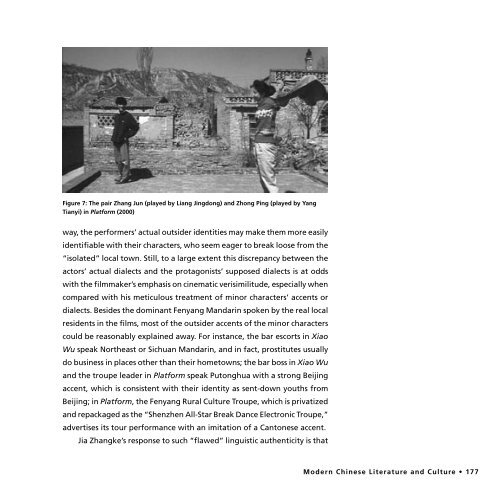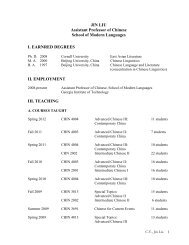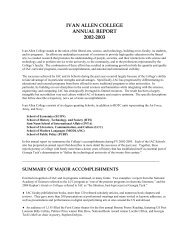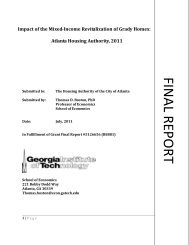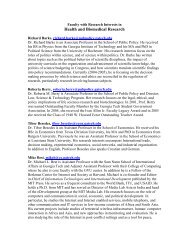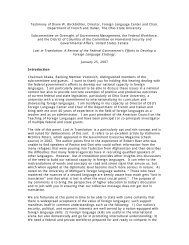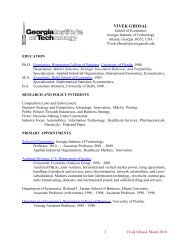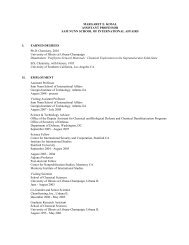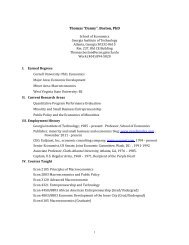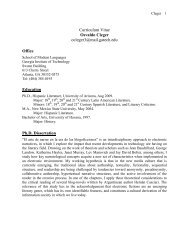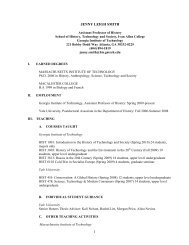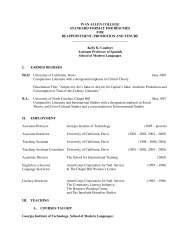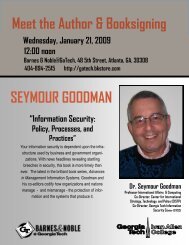Read this paper
Read this paper
Read this paper
Create successful ePaper yourself
Turn your PDF publications into a flip-book with our unique Google optimized e-Paper software.
Figure 7: The pair Zhang Jun (played by Liang Jingdong) and Zhong Ping (played by Yang<br />
Tianyi) in Platform (2000)<br />
way, the performers’ actual outsider identities may make them more easily<br />
identifiable with their characters, who seem eager to break loose from the<br />
“isolated” local town. Still, to a large extent <strong>this</strong> discrepancy between the<br />
actors’ actual dialects and the protagonists’ supposed dialects is at odds<br />
with the filmmaker’s emphasis on cinematic verisimilitude, especially when<br />
compared with his meticulous treatment of minor characters’ accents or<br />
dialects. Besides the dominant Fenyang Mandarin spoken by the real local<br />
residents in the films, most of the outsider accents of the minor characters<br />
could be reasonably explained away. For instance, the bar escorts in Xiao<br />
Wu speak Northeast or Sichuan Mandarin, and in fact, prostitutes usually<br />
do business in places other than their hometowns; the bar boss in Xiao Wu<br />
and the troupe leader in Platform speak Putonghua with a strong Beijing<br />
accent, which is consistent with their identity as sent-down youths from<br />
Beijing; in Platform, the Fenyang Rural Culture Troupe, which is privatized<br />
and repackaged as the “Shenzhen All-Star Break Dance Electronic Troupe,”<br />
advertises its tour performance with an imitation of a Cantonese accent.<br />
Jia Zhangke’s response to such “flawed” linguistic authenticity is that<br />
Modern Chinese Literature and Culture • 177<br />
MCLC 18.2.indd 177<br />
12/20/06 2:01:37 PM


